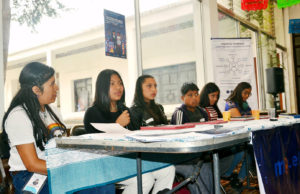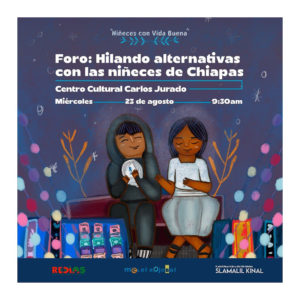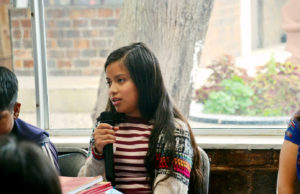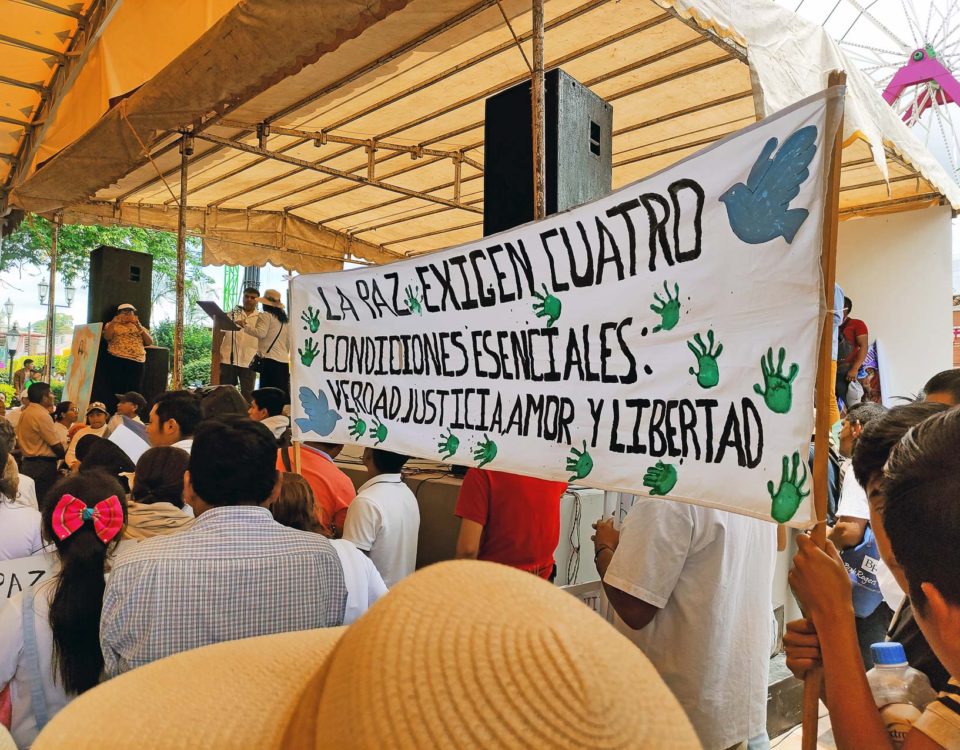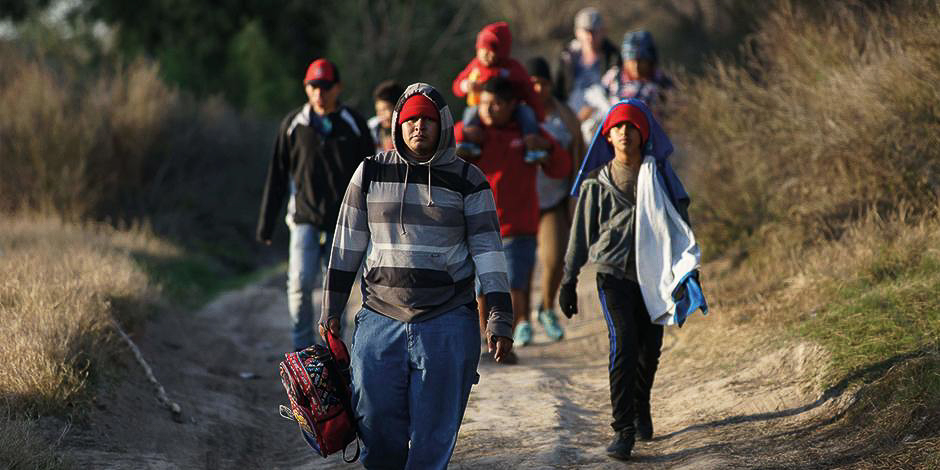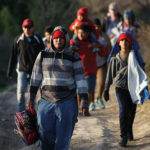
FOCUS: Forced Displacement: Global Crisis, National Incapacity
27/09/2023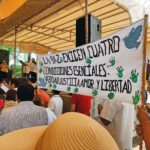
SIPAZ Activities (mid-May to mid-August, 2023)
27/09/2023“What need, what insistence do we have to separate the concerns of adults from those of children and youth? They are not different, but we like to separate them. We continue in this logic of separation: on one side are the spaces for fun and games; on the other, the spaces for adult concerns. If we have an intergenerational dialogue, if adults can listen to children without criticizing, what would happen in our cities?”
I n August, the Forum “Spinning Alternatives with the Children of Chiapas” was held in San Cristobal de Las Casas, convened by Melel Xojobal, the Network for the Rights of Children and Adolescents (REDIAS) and Slamalil Kinal. Its objectives: to highlight the main problems that children and adolescents in the state are facing and coping with; as well as to network and promote analysis and collaboration between organizations and groups to strengthen alternatives for these sectors. This, based on the word of girls, boys and adolescents, their dreams and proposals faced with new scenarios of violence.
The event took place in three major sections: a panel titled “We are Present and we Want a Good Life!”, made up and facilitated by child and adolescent workers and members of the Kolem Ko’ntontik project that takes place in San Cristobal de Las Casas; a table aiming more at the diagnosis of what is happening in the city and the state, and its impact on children and adolescents; and a last table —“We Spin together for Life and Peace”— revolving around the proposals that are being given and/or that need to be consolidated.
The panorama that was made between various voices, including that of minors, was quite bleak. The panel of adolescent women with whom the event opened spoke to us about San Cristobal de Las Casas as a not so magical town where insecurity, shootings, confrontations between armed groups, disappearances and deaths have grown. This does not prevent them from having proposals for a more dignified present and they manage to project themselves into the future by imagining themselves as a chef or a doctor, with a sense of personal fulfillment, but also of putting themselves at the service of others, of the communities.
The table that followed focused on the diagnosis of what is happening in the city, the state, in Mexico, the old and new forms of violence and their impact on children and adolescents.
Melel Xojobal spoke to us about “criminal violence as a daily reality, in which the involvement of organized crime is profiled as an emerging form of violence that is on the rise” in San Cristobal de Las Casas. The population at greatest risk are adolescents between the ages of 12 and 14 who, for the most part, “live in areas where criminal groups operate, experience violence in the family environment, do not attend school, have precarious jobs or are unemployed, and have some problematic consumption of drugs or alcohol”, it was stressed. Likewise, it regretted that addiction is only one of the “most visible forms of violence in a continuum of violence that they face throughout their lives: from family violence, which is the most common crime in Chiapas, to disappearance and homicide.” (These last two crimes have been increasing at the local and state level with increasing impacts on children and adolescents).
The Children’s Network in Mexico (REDIM) expanded perspectives by sharing elements of a national report titled “Childhood: Target of Criminal Groups. Recruitment and Use of Children and Adolescents to the Detriment of their Rights”. While recruitment implies a more formal belonging to criminal structures, many other forms of “use” are identified in various tasks such as errands, cleaning, surveillance (hawks), sale and transportation of drugs, waitresses in bars and canteens, sexual exploitation, hired assassins, among others.
Another form of problem that became visible was children in a situation of mobility. Voces Mesoamericanas (Mesoamerican Voices) mentioned the “mosaic” of realities: children from Chiapas who leave their communities to get to the city, to work as laborers in northern Mexico, or who go to the United States for family reunification; displaced children; children from Central and South America, or even from Africa, who arrive in Chiapas seeking to cross the country to reach the United States. One of the challenges that Voces identifies for action is that, in more than one area, organized crime has become one of the few alternatives to migrating. The youth need a source of decent work or money to stay in their territories. Chiapas, being one of the poorest states in the country, has little to offer its youth.
The increase in cases of youth suicide in the Chiapas Highlands was also highlighted; as well as the racism that prevails towards indigenous populations.
The next work table gave us some of the answers that are being consolidated, their learning and challenges, outlining ideas to continue weaving alternatives. Art, sports, creative ways of addressing different issues, recovery of indigenous languages, activities related to the preservation of the environment, spirituality and culture are elements that drive many of the groups, organizations and neighborhood structures that shared their experiences.
Systematizing the contributions, the Whitaker Initiative for Peace and Development (WIPD) challenged us to think not only about opening spaces for participation for children and adolescents, but also to develop it with them, to dream of the future through true intergenerational dialogues.
Ending the day, Melel Xojobal reflected on the importance of continuing to spin actions and networks, “without making knots”, overcoming the mistrust that is exacerbated in the midst of so much violence. In return, it saw it as key to affirm the joy, hopes, leadership roles and agencies of girls, boys and adolescents. Likewise, it stressed the value of bringing together different views and perspectives in order to improve our accompaniment. Nurtured by this joint space, it hopes to be able to publish a broader diagnosis of the situation in San Cristobal de Las Casas.
A representative of Slamalil Kinal shared for her part: “The outlook is bleak in the state. But we want to continue supporting and consolidating spaces that build alternatives. I see a panel of pure adolescent women and I still see hope and resilience. Our childhoods and adolescents are seeds of the future. As the expert in Positive Conflict Transformation, Juan Pablo Lederach, says, building peace is like listening to the cornfield grow. Well, since he was from the United States, he was talking about grass… But the point is that we don’t lose hope, the perspective of the future and that we remain attentive to what continues to grow despite everything.”

